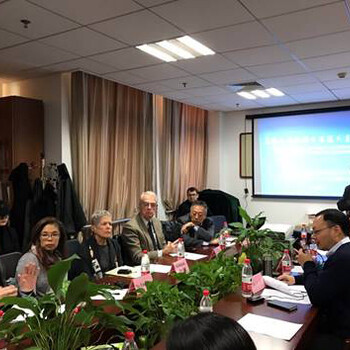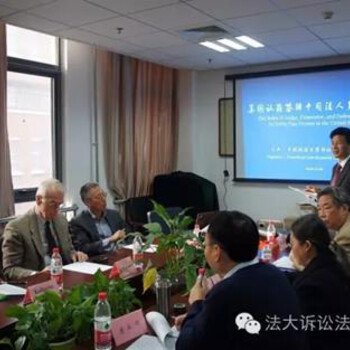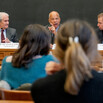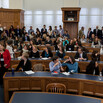Comparative Law Workshops Held on Criminal Justice Reform

On November 24, Senior Fellow Jeremy Daum and Research Associate Jacob Clark hosted a comparative law session on U.S. plea negotiations and China’s pilot programs on analogous procedures at the Beijing King and Capital Law Firm’s Criminal Defense Research Center. Joining the discussion on Chinese pilot projects were a number of leading Chinese criminal procedure experts including Renmin University Professor Weidong Chen, China Law Society Scholar Minyuan Wang, China University of Political Science and Law Professor Chongyi Fan, former judge at the Supreme People’s Court Guijun Gao, and King and Capital Law Firm partner Wenchang Tian.
These Chinese experts were joined by Judge Katharine Hayden of the U.S. District Court for the District of New Jersey, seasoned criminal defense attorney Joseph Hayden, and Ye-ting Woo, an Assistant U.S. Attorney and current legal advisor at the U.S. embassy in Beijing. The three experts presented on how each of their roles in the criminal process works together in the U.S. plea negotiation process to ensure that defendants’ guilty pleas are made voluntarily, intelligently, and knowingly.

Subsequent events at China University of Political Science and Law and Renmin University Law School also drew crowds of graduate students working in this area. These events featured eminent Chinese scholars and experts such as Dean Bensen Li, Professor Yuguang Yang, Professor Zhiyuan Guo, Professor Lei Cheng, practicing attorney and professor Shuo Guo, and Supreme People’s Court Criminal Tribunal Judge Yongjun Xu.


